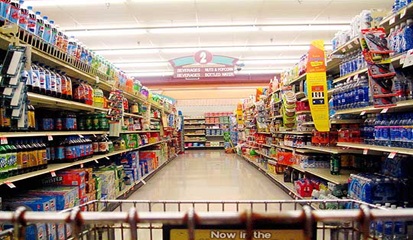 How much we buy–and how much we throw away–can have a big impact on the environment. Furthermore, demand has a huge impact on responsive governance, as it shapes incentives to refuse to comply with regulation or to lobby to prevent stronger governance measures. Indeed, most of the worst environmental problems are associated with goods that are in high demand, whether oil or rhino horn or bluefin tuna. High demand creates profit disconnects that drive production well above sustainable limits and also feeds power disconnects as industries build up their political influence in order to avoid regulation. On the other hand, when consumers buy more than they want or need, this increases waste–not just at the landfill but throughout the life cycle of the unused product–and this in turn affects regulations at local, state, and national levels of governance. For these reasons, understanding demand is important for understanding responsive governance.
How much we buy–and how much we throw away–can have a big impact on the environment. Furthermore, demand has a huge impact on responsive governance, as it shapes incentives to refuse to comply with regulation or to lobby to prevent stronger governance measures. Indeed, most of the worst environmental problems are associated with goods that are in high demand, whether oil or rhino horn or bluefin tuna. High demand creates profit disconnects that drive production well above sustainable limits and also feeds power disconnects as industries build up their political influence in order to avoid regulation. On the other hand, when consumers buy more than they want or need, this increases waste–not just at the landfill but throughout the life cycle of the unused product–and this in turn affects regulations at local, state, and national levels of governance. For these reasons, understanding demand is important for understanding responsive governance.
Economists usually model consumers as perfectly rational actors, or at best they may assume that consumers have limited information and high transaction costs. However, psychological studies of consumer behavior show that consumers are boundedly rational, or sometimes even irrational, when they purchase items. This means that they frequently rely on heuristic devices or “rules of thumb” to make shopping easier and they may also have unrealistic expectations about the benefits of a given purchase. Social factors can also have strong effects on consumer behavior, affecting the amount of consumption as well as the types of products consumed. This project is designed to investigate the aggregate impacts of social norms and boundedly rational consumer behavior on total consumption and consumer waste.
The core of this project is the CCS Framework, a complex computational environment that allows for the creation of agent based models of consumer behavior that combine environmental, economic, personal, and social characteristics. Agent based models are useful in this area because they accommodate heterogeneity in consumer attributes and preferences as well as use of complex preference aggregation procedures that are not mathematically tractable. For the time being we have modeled two important decision processes in CCS: 1) maximizing, where consumers choose the best basket of goods that they can afford; and 2) satisficing, where consumers accept the first “satisfactory” option available rather than searching for the utility maximizing option (Simon 1955; Schwartz 2008; Roozmand and Webster 2014). We have also modeled the effects of magical thinking, which occurs when consumers believe that a purchase will affect their lives in irrational ways (e.g. the belief that purchasing a new shampoo brings sudden popularity). Each of these research programs are covered in greater detail in the CCS subpages (Maximizing vs. Satisficing, Magic & Frugality) . Future work includes incorporation of social dynamics such as norms of frugality and cultural aspects of hierarchy and individualism to understand uptake of green consumer behaviors and the creation of CCS-Data, a database of consumer behavior that will be used to validate our agent based models.
We developed CCS with Repast Symphony. This framework includes three different parts: 1) the Input Provider, which provides the input data for consumer and seller agents, 2) the Repast Model, which includes agents, environment for agent’s communications, and different classes for storing temporary data and managing input and output files, and 3) the Output Analyzer, which stores all consumers’ data from all runs in a Results.csv file, as shown in Figure CCS.1. Seller agents are relatively simple in the model and we assume that consumers are price takers in a free market where the supply curve is concave and downward sloping. By keeping the suppliers simple we are able to focus on the complex effects of changes in consumer behavior—though we hope to develop a fully coupled supply and demand model in the future. Consumers are quite complicated. They have all of the attributes that would ordinarily be found in an economic model (e.g. income, preferences, utility, and transaction costs), but also can be varied in terms of their decision processes, pre- and post-purchase perceptions of utility, and (beta version) response to social norms.
CCS.1 Framework Set Up


